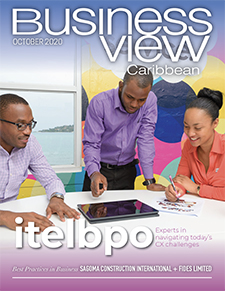Over the course of 2020, Expedia Group has tracked the ever-changing consumer sentiment towards travel in today’s COVID-19 environment. As the industry sees early signs of recovery, the world’s travel platform wanted to learn more about how traveler booking behaviors may have changed in the wake of the pandemic, while ensuring its partners are able to shift strategies to meet evolving traveler wants and needs.
Although there is still no vaccine that can stop the wave of coronavirus infections, data and trends show that travelers want to continue exploring their dream destinations by adhering to the warnings and restrictions of the new normality. According to the Traffic Report by the Latin American and Caribbean Air Transport Association (ALTA), the region continues to mark a slight recovery, with almost 5 million passengers transported last July.
Caribbean destinations are still in the top of mind of international travelers, especially those from United States (80%), according to Expedia Group data in July. Also, in this month, when most Caribbean countries opened their borders to travelers, data from Expedia Group revealed that international travel searches showed a growth for Dominican Republic and Puerto Rico, the most searched countries in the region with 30% and almost 35% in August and October searches, respectively. Most Latin America countries are in or about to reach their peak of the pandemic, however these nations create and update measures and protocols to invite travelers by offering a safer experience.
For example, Dominican Republic launched the Safe Tourism Assistance Plan, an initiative of The Ministry of Tourism in alliance with the Banco de Reservas and Seguros Reserva in order to reactive tourism. It includes free travel insurance for tourists to give them medical coverage from September 15 to December 31 in case they contract COVID-19. Another one is Jamaica, which established four traveler categories for non-residents visiting the country with tourism purposes staying within the “resilient corridor”. It means that the visitors need to do a pre-testing requirement especially those from high risk locations.
How have travelers’ preferences changed?
Expedia Group collected information from 30,000 travelers in 13 countries to better understand the factors that influence decision-making, particularly around value, cleanliness, and the interactions that matter most to them. Most of the travelers surveyed – 73% – report a change in travel preferences in reaction to COVID-19. The most notable global shifts include nearly a third taking more domestic trips, one-fifth traveling more by car and one-fifth enjoying more relaxing beach vacations.
The research also shows preferences vary across the globe:
- Travelers in Mexico are heading to the beach. The increased desire for a relaxing beach vacation is highest among Mexican travelers (63%)
- German travelers intend to take more international trips (18%) than people globally (12%)
- Solo travel is on the rise in France. The desire to travel alone has skyrocketed in France (25%) compared with the average increase globally (12%)
Do more to make your property stand out
Cost remains the biggest consideration point for booking a hotel, a consistency seen across many Expedia Group studies throughout the last several years. Finding the right rate was the top selection for all generations when considering a booking (40%), followed by the property’s location.
More than eight out of ten travelers said hotels in similar price ranges look the same online and that they must do more to stand out. This crossed generational lines – showing that overall, hotels are not doing enough to make their properties unique and differentiated. Hotel properties can differentiate themselves from their competitive sets today by offering flexible cancellation polices as well as incentives for early bookings, including discounts for longer bookings, as travelers are looking for extended stays to get away from home. Adding an experience to a booking – from in-room breakfast with mimosas, free parking or a spa discount – can also go far.
Reputation and cleanliness are the key
Nearly three-quarters of travelers read reviews before booking a property. Reviews make an impact, especially to the heavily socially-influenced millennials and Gen Z, who showed slightly higher consideration for a property based on reviews. Baby boomers were the least likely to read reviews, with one-third skipping this step entirely. In addition, 80% of travelers believe that, if the hotels don’t respond to negative property reviews, this review must be truthful, thereby damaging their consideration.
The most influential and impactful reviews rated by the respondents were about “room cleanliness” and “overall condition of the hotel.” Aligned with the focus on cleanliness in reviews, a recent Expedia Group and BVA BDRC study showed that more than 50% of travelers now expect hand sanitizer to be available throughout the hotel, with half also expecting more enhanced cleaning regimes, and hotel brand cleanliness standards. To inform potential guests about their safety matters, hoteliers can now add their health and hygiene policies to listings on Expedia Group sites.
Image and online presence
Now more than ever, travelers are dreaming of their next trip. Nearly half of travelers look at 10 or more photos of a property, however one-fifth of millennials and Gen Z looking at 15-plus photos. Hotels should do their best to visually represent their property benefits, helping encourage guests in the dreaming or research phase of their travel journey to book. The photo score in Expedia Group Partner Central helps hoteliers quickly identify which photos are missing and ways to highlight all the unique features of your rooms. However, pictures are less important if a hotel is only targeting baby boomers, as one-third of them will look at five or fewer photos.
Contact with travelers
According to the study, most travelers (70%) want to receive information regarding amenities prior to check-in. Hoteliers can use our messages tool to send out communication in advance of arrival letting guests know of any new practices or changes to amenities that may impact their stay, reducing the risk of mis-matched expectations. Nearly 60% of travelers across all generations are willing to share their arrival time, along with any special needs, in advance, in order to improve their stay.



 This information will never be shared to third parties
This information will never be shared to third parties